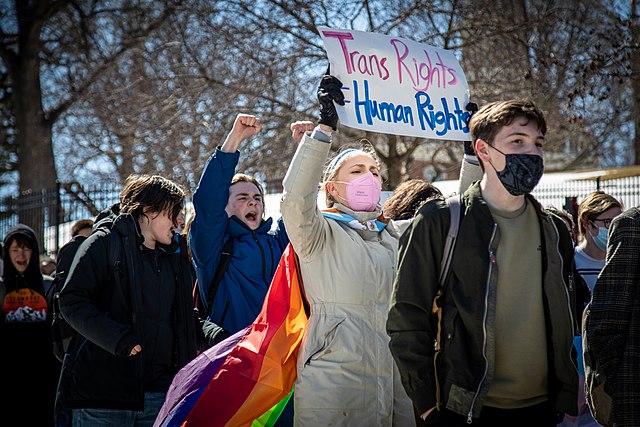The Scottish Parliament Thursday passed the Gender Recognition Reform Act, which makes it easier for transgender people in Scotland to obtain a Gender Recognition Certificate (GRC) and access necessary services. After a brief delay, the bill passed with votes from all parties.“This is an historic day for equality in Scotland with the Gender Recognition Reform Bill being approved by parliament and by members of all parties,” said Scottish Social Justice Secretary Shona Robison. “The passing of this bill is a significant step forward in creating a more equal Scotland, where trans people feel valued, included and empowered.”The law amends the Gender Recognition Act of 2004 and lowers the requirements for a GRC, allowing 16 and 17-year-olds to apply for a GRC that matches their “acquired gender.” To receive a GRC, applicants must prove that they have been living permanently as their “acquired gender” for at least three months. False applications can result in a criminal sentence with a maximum penalty of two years in prison. In addition, the 2004 law required GRC applicants to receive an official medical diagnosis before they could obtain documentation matching their gender. The new law removes this requirement, which trans rights advocates criticized as intrusive, medicalized and bureaucratic.Critics of the bill alleged that it could negatively impact efforts to achieve gender equality for cisgender women. Supporters emphatically rejected this, with Robison saying that “the legislation makes no change to the reserved Equality Act 2010 and that principle is enshrined in the Bill. As I have made clear, the Scottish Government continues to support the provision of single-sex services and the rights of women.”Many human rights organizations called for the Scottish parliament to pass the act to strengthen trans rights. Victor Madrigal-Borloz, an independent expert for the UN Human Rights Commission, urged passage last week, saying:United Nations human rights bodies that have spoken on the matter have constantly found that legal recognition of gender identity through self-identification is the most efficient and appropriate way to ensure the enjoyment of human rights, and I am yet to learn of a country in which this is not the case. Arbitrary obstacles to legal recognition of gender identity directly violate State human rights obligations, and they are by definition authoritarian and anti-democratic.The new law comes at a time of tension for LGBT+ people living in the UK. In May, ILGA-Europe released its annual Rainbow Europe report ranking countries’ treatment of LGBT+ people. Though the UK ranked 14, it declined for the third year in a row, and the report cited continued issues with discrimination, trans healthcare access and gender recognition. Supporters hope that passing the Gender Recognition Reform Act will help reverse those trends.



The Most Read
Сryptocurrencies
Bitcoin and Altcoins Trading Near Make-or-Break Levels
Financial crimes
Thieves targeted crypto execs and threatened their families in wide-ranging scheme
Financial crimes
Visa Warning: Hackers Ramp Up Card Stealing Attacks At Gas Stations
News
Capitalism is having an identity crisis – but it is still the best system
Uncategorized
The 73-year-old Vietnamese refugee is responsible for bringing Sriracha to American consumers
Uncategorized
Electric Truckmaker Rivian, Backed By Amazon, Ford, Raises Whopping $1.3 Billion